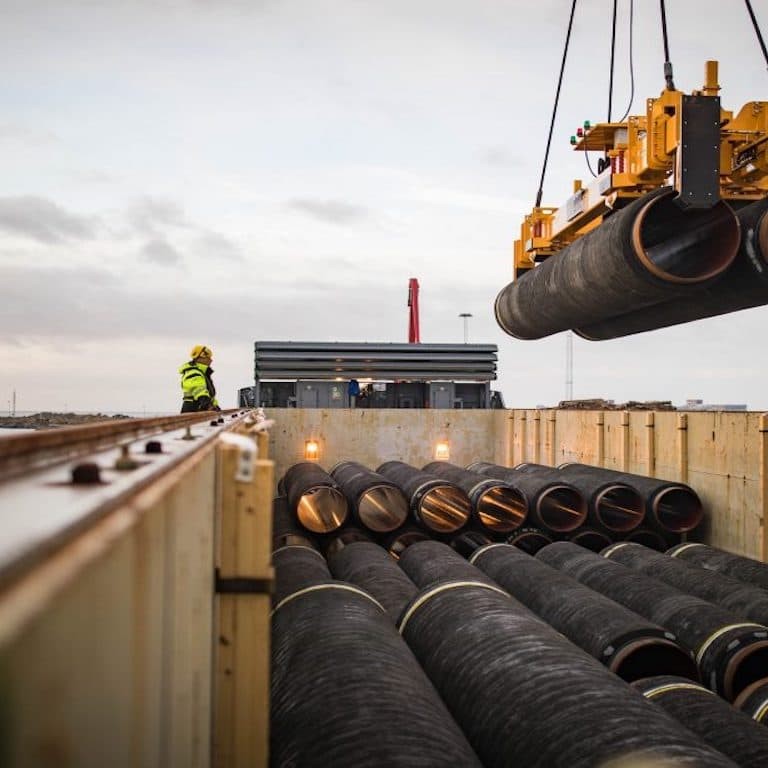The development highlighted Europe’s ongoing approach to engaging the country in this realm amid significant challenges.
On April 29, the European Union (EU) officially announced that it would extend its arms embargo in Myanmar. Though the development was expected considering previous EU statements issued as well as ongoing developments within Myanmar, it nonetheless highlighted an aspect of Europe’s role in the Southeast Asian state that continues to receive significant attention.
While Europe’s role in Myanmar tends not to get as many headlines as that of other players such as the United States or China, the European Union as well as some individual European countries continue to play an important role in the country’s development across a range of areas, not just in standard areas like the economy, but also in supporting peace efforts and helping to address lingering human rights concerns, including the troubling situation in Rakhine State.
Despite this wider role, the aspect of the EU’s involvement in Myanmar that tends to be in the spotlight more so than others is the status of its arms embargo on the Southeast Asian state. While the embargo itself has been in place since the 1990s even as some forms of limited security collaboration have gone on particularly on the part of individual European states, the ongoing focus on it in recent years has come amid the broader issue about the balance between engagement and sanction amid changes in Myanmar’s own political development in recent years. It is also part of a wider conversation about how Western countries, including the United States and European states, ought to calibrate interests and ideals separately as well as collectively in the wake of opportunities and challenges therein.
Though the embargo itself had remained in place even amid the easing of restrictions amid Myanmar’s initial political opening and the election of the National League for Democracy (NLD) led by Aung San Suu Kyi in 2015 elections, there were ongoing conversations about efforts to further advance security ties and even more easing of existing restrictions. But Europe’s growing concerns about democracy and human rights issues, and most notably the deteriorating situation with respect to the repression of the ethnic Rohingya minority, had undermined prospects for such efforts. Indeed, with the EU’s repeatedly stated public concern about developments in Myanmar on the front over the past year, including its response to a UN fact-finding mission articulated last December, it was quite clear that the embargo would remain in place or even potentially be strengthened further for the foreseeable future.

Sure enough, on April 29, the EU officially announced that it would extend its arms embargo in Myanmar by another year. The EU Council announced on April 29 that the newly enforced sanctions – which include restrictions covering some arms and dual-use equipment, forms of military training and collaboration, and targeted restrictive measures on individuals in some parts of Myanmar’s security forces including the military (Tatmadaw) and the border guard police – are now expected to remain in place until April 30, 2020, and will be reviewed before then.
The extension itself comes as no surprise given what the EU has previously said as well as what continues to go on in Myanmar. Indeed, over the past year or so, the EU has publicly been announcing a series of ways by which it has been managing existing restrictions and also considering new ones in the wake of the ongoing situation in Myanmar, while also making clear to Naypyidaw what steps would needed to be taken in order for a potential change in its stance as well.
To be sure, as was noted previously, the EU’s involvement in Myanmar ought not to be confused with the role of individual European states in the Southeast Asian country, and Europe is just one of several players operating there. Nonetheless, given the wider trends in Myanmar at play today and looking ahead into the future, be it the adjustments Myanmar’s military has had to make on the security side in the wake of Western censure including relying more on Russia and China, or the upcoming Myanmar elections in 2020, which will be yet another important signpost in the country’s ongoing development, Europe’s Myanmar role in general and the arms embargo in particular will continue to be important to watch.
Redazione
La redazione di Babilon è composta da giovani giornalisti, analisti e ricercatori attenti alle dinamiche mondiali. Il nostro obiettivo è rendere più comprensibile la geopolitica a tutti i tipi di lettori.
Venezuela, che fine ha fatto il cooperante italiano Trentini?
12 Mar 2025
Ne parla il libro di Paesi Edizioni Intanto a Caracas, nuovo saggio sulla crisi del Venezuela di Maurizio Stefanini:…
Terre rare: quanto valgono i giacimenti ucraini
3 Mar 2025
Nelle scorse settimane il presidente degli Stati Uniti Trump ha raddoppiato l'accordo da 500 miliardi di dollari sui…
Germania in panne. Che ne sarà del modello tedesco
4 Feb 2025
A pochi giorni dalle elezioni tedesche Paesi Edizioni, la casa editrice basata a Roma specializzata nella saggistica…
L’Europa non ha mai smesso di importare gas dalla Russia
31 Gen 2025
Le importazioni di gas russo, sia attraverso linee di tubature che in forma liquefatta, verso il mercato europeo non…




